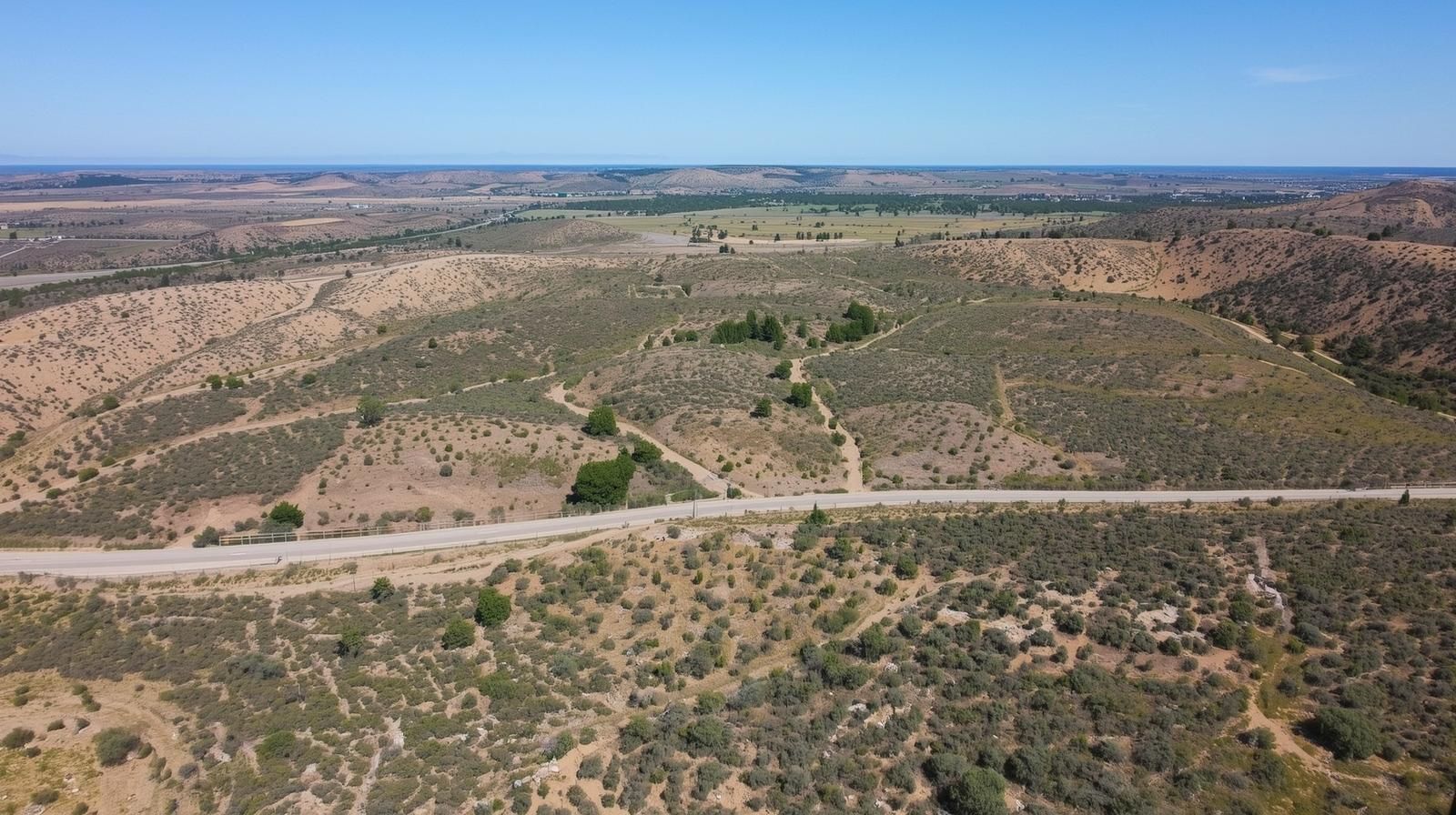Buying Raw Land in North Carolina: A Field-Tested Guide for Builders, Investors, and Dreamers

Buying dirt is different from buying doors. In North Carolina, a beautiful, “cheap” tract can become expensive fast if you miss a permit, an easement, or a flood layer. Here’s a practical, source-backed guide to help you evaluate land confidently—and a checklist you can actually use.
Why buying raw land can make serious sense
-
Scarcity + flexibility. You control use and timing—build, hold, flip, farm, or timber. Strategic parcels near growth corridors can outpace improved-home appreciation (and allow custom highest/best use later).
-
Tax advantages via Present-Use Value (PUV). Qualifying agricultural/forestry land can be assessed at use value instead of market value—often meaning substantial reductions in annual property taxes (and potential rollback taxes if use changes). Farm Law+1
-
Creative exit strategies. Subdivide (where allowed), create homesites, harvest timber, or resell with entitlements. Note: subdivisions and local development are governed by NC Chapter 160D, so plan within local ordinances. North Carolina General Assembly+1
Step-by-step due diligence (NC-specific)
1) Zoning, subdivision & intended use
Confirm zoning and whether your plan triggers subdivision rules (even “one lot out” can count). Local UDOs implement statewide Chapter 160D standards. If you intend to split land, review local “minor/major” subdivision processes early. UNC School of Government+1
Pro tip: Pull the parcel in your county GIS and in NC OneMap (statewide parcels). Cross-check layers for zoning overlays and nearby infrastructure. NC OneMap+1
2) Legal access, easements & private roads
A landlocked tract or vague “use of farm road” can crater resale and financing. You want deeded access, a recorded road maintenance agreement, and clear easement language. Courts treat easements seriously—and disputes are common. Ward and Smith, P.A.+1
If your driveway ties into a state-maintained road, you (or your builder) generally need an NCDOT driveway access permit. Review the permit app and user guide before you close. Connect NCDOT+1
3) Septic viability (the modern NC way)
NC moved beyond simple “perc tests.” Today, licensed soil scientists or Authorized On-Site Wastewater Evaluators (AOWE) can perform soil/site evaluations and design packages that the county can use for permitting—often with faster timelines. Ask for a written soils report tied to a conceptual system layout. North Carolina General Assembly+1
Helpful context: Recent NC session laws formalized private-sector options; many counties now explain these paths (LSS/AOWE/PE) on their sites. Rowan County+1
4) Water, wells, utilities
Budget for a well (or tap fees if available), power run-ins, and telecom. Your county GIS and utility providers can estimate extension costs; soils and topography inform well depth and treatment needs (iron/manganese, etc.). (General buyer guidance corroborated by NC land-buying resources.) Raleigh Realty
5) Floodplains, wetlands & riparian buffers
-
Flood risk: Pull the parcel in the NC Flood Risk Information System (FRIS) to see effective/pending flood zones and estimate insurance needs. FRIS+1
-
Wetlands/streams: Projects impacting waters/wetlands can trigger USACE Section 404 and NCDEQ Section 401 authorizations; read NCDEQ’s state FAQ. NC Department of Environmental Quality
-
Riparian buffers: NC has watershed-specific buffer rules (Neuse, Tar-Pamlico, Jordan/Randleman, Catawba, Goose Creek). Activities in buffer zones are limited or require written approvals. Check your basin early. NC Department of Environmental Quality+1
Coastline note: In coastal counties, development within Areas of Environmental Concern may need CAMA permits (minor/major/general). Timing and submittals are specific—plan ahead. NC Department of Environmental Quality+1
6) Title, mineral rights & encumbrances
NC law requires a mineral/oil/gas rights disclosure for residential property; mineral rights can be severed from surface ownership. Your closing attorney should confirm status during title. (Ancient claims and separate taxation rules also exist.) FindLaw Codes+2North Carolina General Assembly+2
Also confirm: conservation easements, utility easements, deed restrictions/HOA, and any timber contracts.
7) Surveys & boundaries
Order a current boundary survey (corners set) with any proposed easement locations, building envelopes, and buffer lines shown. When subdividing, plats must meet county standards and be prepared by a NC PLS. Bertie County
8) Taxes & exemptions
If you’ll farm, manage timber, or horticulture, explore PUV enrollment (ag/forest/horticulture). Understand rollback taxes if you later change use or sell off portions. NCDOR+1
9) Financing options for land & build
Traditional conforming loans often exclude raw land, but NC buyers frequently use:
-
Farm Credit associations (AgCarolina/AgSouth) for land/timber/home-site loans.
-
Lot loans and one-time close construction-to-perm from regional banks/credit unions.
Compare LTVs, terms, and whether the lender allows “land + build” in one closing. Coastal Credit Union+3AgCarolina Farm Credit+3AgSouth Farm Credit+3
10) Contracts & earnest money vs. due diligence money (NC forms)
For vacant land, NC uses Standard Form 12-T (Vacant Lot/Land Offer to Purchase and Contract). Expect both due diligence fee (paid to the seller; generally non-refundable) and earnest money (escrow). Know the deadlines. NC REALTORS®+1
A practical NC land-buying checklist (save this)
-
Pull parcel in county GIS + NC OneMap; confirm zoning & overlays. NC OneMap
-
Verify legal, deeded access and maintenance agreement; plan for any NCDOT driveway permit. Connect NCDOT
-
Engage a licensed soil scientist/AOWE for a soils evaluation tied to system sizing/location. North Carolina General Assembly
-
Check FRIS flood maps; walk the site for wetlands/streams; research 401/404 and buffer rules. FRIS+2NC Department of Environmental Quality+2
-
Order a boundary survey (current), title search, mineral rights status. FindLaw Codes
-
Price utilities (well/power/telecom/propane) and driveway/sitework; confirm HOA/POA or deed restrictions. (General; see zoning/160D.) North Carolina General Assembly
-
If applicable, evaluate PUV eligibility or develop a forest management plan before closing. Farm Law
-
Choose a land-savvy lender (Farm Credit/lot-loan/one-time-close) if you’re not paying cash. AgCarolina Farm Credit+1
-
Use NC Form 12-T, negotiate the due diligence period long enough to complete all studies. NC REALTORS®
Why hire an experienced North Carolina REALTOR® (and why me)
-
Local rules & land traps: From Jordan Lake buffers to NCDOT permits and county-by-county GIS quirks, land deals hinge on the details. I quarterback the team (soil scientist, surveyor, closing attorney, lender) and keep your timeline clean. North Carolina Files+1
-
Negotiation that protects your clock and cash: We structure your 12-T with a realistic due-diligence window and fee strategy—so you can investigate properly without overpaying for time. NC REALTORS®
-
Investor-minded approach: I work daily with builders, first-time land buyers, fix-and-flip investors, and buy-and-hold clients in the Triad/Triangle and beyond. We underwrite the parcel like a project, not a postcard.
Ready to evaluate a specific tract?
-
Book a free 30-minute consult: Booking Link
-
Call/Text: (336) 567-5843
-
Email: jessicajbrealtor@gmail.com
I’ll pull the GIS layers, FRIS flood data, deed history, and a short list of soil scientists/surveyors for your county, then map a step-by-step plan through closing. Let’s turn raw land into your next win.
Key resources (quick links)
-
NC OneMap (statewide parcels/GIS)
-
NC Flood Risk Information System (FRIS). FRIS
-
NCDEQ Riparian Buffer Program (Neuse/Tar-Pamlico/Jordan/Randleman/Catawba/Goose Creek). NC Department of Environmental Quality
-
NCDEQ 401/404 permitting overview (wetlands/streams). NC Department of Environmental Quality
-
NCDOT Driveway Permit application & guide. Connect NCDOT+1
-
NC Present-Use Value (PUV) program basics. Farm Law
-
NC Standard Vacant Lot/Land contract (Form 12-T). NC REALTORS®
-

Categories
- All Blogs (599)
- Buying/Selling Raw Land (34)
- Distressed/Foreclosure Education (42)
- Divorce in NC? Own Real Estate? You Should Know... (39)
- First Time Home Buyer Education (55)
- For Aspiring Agents (4)
- For NC Wholesalers (23)
- For Real Estate Agents (36)
- FSBO Tips (63)
- Holiday Moves (6)
- Homebuyer Tips (70)
- Homeowner Tips (77)
- Homesteaders (4)
- Keeping it Real (18)
- Market Forecast (17)
- Market Updates and Trends (80)
- My Story (1)
- NC Luxury Market Data (31)
- New Construction Homes (22)
- Real Estate Investor Education (97)
- STOP Renting! START Owning! (37)
Recent Posts










GET MORE INFORMATION

REALTOR® NCREA CREIPS | License ID: 312309

